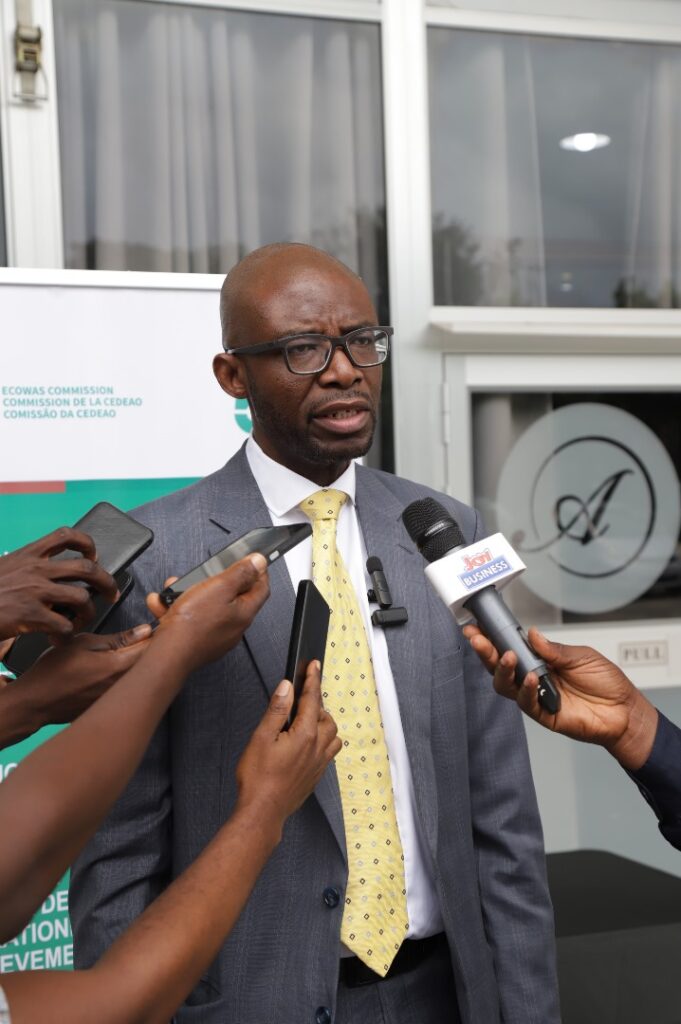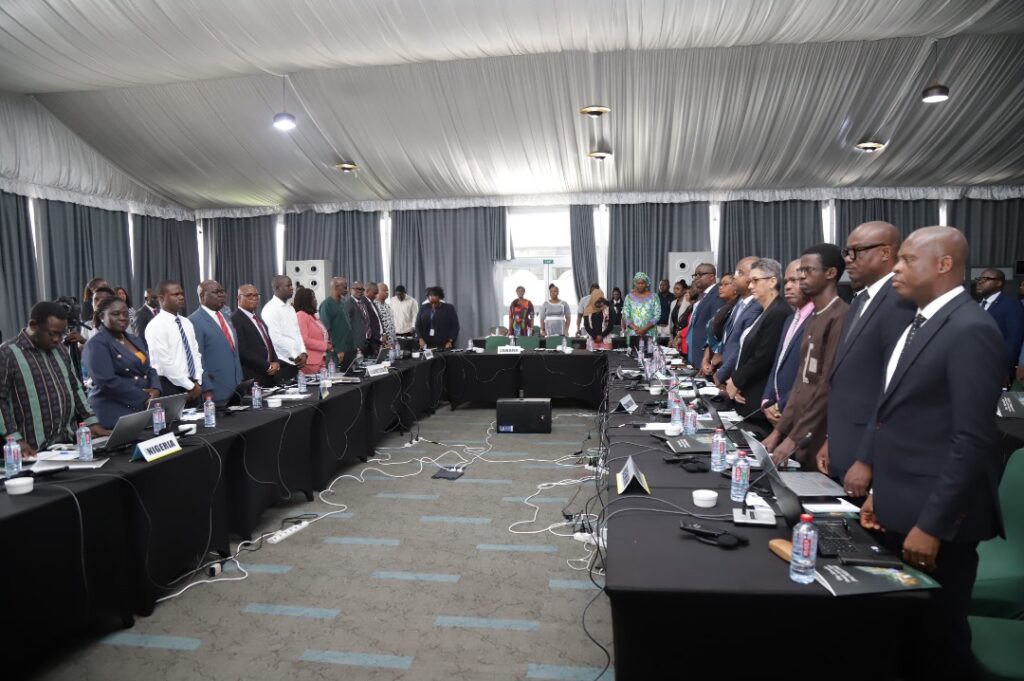ECOWAS Experts Convene in Accra, Strategize On Regional Funding through New Community Levy Manual.
By Raymond Enoch.
In a move poised to reshape the financial heart of West Africa’s most powerful regional institution, a high-level array of experts from ECOWAS Member States meet in Accra, Ghana, over the draft regulations for the ECOWAS Community Levy Operations Manual—a document expected to redefine how the regional organization finances its development projects and priorities.

The meeting, which runs from the 23rd to the 26th of September 2025, brings together financial minds from across the ECOWASMemberstates. It is more than a routine technical session—it is the latest in a series of strategic steps to harmonize and strengthen the financial framework that sustains ECOWAS operations, and by extension, the region’s pursuit of integration, security, infrastructure, trade facilitation, and political stability.
At the core of the meeting is the Community Levy, a financial lifeline that finances the day-to-day work, activities and programmes of the ECOWASCommission. Though often overshadowed by the political and security headlines the bloc commands, this levy—set at 0.5% on goods imported into Member States from non-ECOWAS countries—accounts for an astounding 70% to 80% of the organization’s budget. Without it, many of ECOWAS’s flagship initiatives, including peacekeeping deployments, cross-border trade facilitation, and regional infrastructure projects, would stall indefinitely.

The technical review in Accra marks a critical turning point: the existing operational framework of the levy is being reevaluated to address emerging challenges, particularly inconsistencies in how Member States collect, remit, and account for the funds. This effort seeks to create a unified, transparent, and enforceable set of guidelines—a manual that will not only standardize procedures but also reinforce accountability, improve compliance, and ultimately secure the long-term sustainability of ECOWAS’s financial model.
The event was formally opened with a keynote by Dr. Roberts Moikowa, representing the Chairman of the ECOWAS Administration and Finance Committee, underscoring the political importance of the gathering. His remarks followed a welcome address from Mr. Eddison Agbenyegah, Head of the ECOWAS National Office in Ghana, who reminded participants of the strategic significance of the Community Levy as a symbol of Member States’ shared commitment to collective progress. Also addressing the gathering was Professor Abdullahi Nazifi Darma, Commissioner for Internal Services of ECOWAS, who highlighted the operational gaps that have plagued the current system, advocating for a modernized framework that reflects both the scale and complexity of today’s regional challenges.
Sources close to the ECOWAS Commission describe the draft manual as both ambitious and practical. It seeks to clarify the administrative roles of national focal points, central banks, customs authorities, and the ECOWAS Commission itself. It also proposes digital tracking systems, stricter timelines for remittance, dispute resolution mechanisms, and penalties for non-compliance—all designed to reinforce the principle that the financial health of ECOWAS is a shared responsibility, not an optional gesture of solidarity.
Observers say the stakes could not be higher. As the region grapples with multidimensional crises—from climate-induced displacement to security threats in the Sahel, and economic shocks worsened by global inflation—ECOWAS is under increasing pressure to deliver results. And delivering results, insiders stress, begins with predictable financing.
However, the levy system has long faced criticism. Some Member States have lagged in remitting their dues or have diverted collected levies into national accounts. Others cite challenges with valuation of goods and exchange rate discrepancies as factors affecting full compliance. These inefficiencies have led to budget shortfalls and delayed implementation of programs critical to regional development.
This week’s meeting is, therefore, not just technical—it is existential. If successful, the adoption of the new Operations Manual could become a landmark achievement in regional financial governance, aligning fiscal contributions with political commitments. It also sends a clear message to international partners and private investors that ECOWAS is serious about building institutions capable of managing resources transparently and effectively.
Beyond the boardroom in Accra, the impact of a revitalized Community Levy system could be profound. From rural roads that connect farming communities to regional markets, to youth entrepreneurship schemes, electricity grid interconnectivity, cross-border security patrols, and response mechanisms to natural disasters—nearly every ECOWAS initiative depends, in some part, on the health of this single funding stream.
What happens in Accra this week may not make global headlines, but it will quietly decide whether ECOWAS can continue to be the engine of regional development and integration it was envisioned to be.
As Member States debate and refine the final provisions of the manual, one thing is clear: the time for fragmented approaches and voluntary compliance is over. The ECOWAS of the future must be built on firm financial ground—and that future is being drafted right now, one article at a time.









